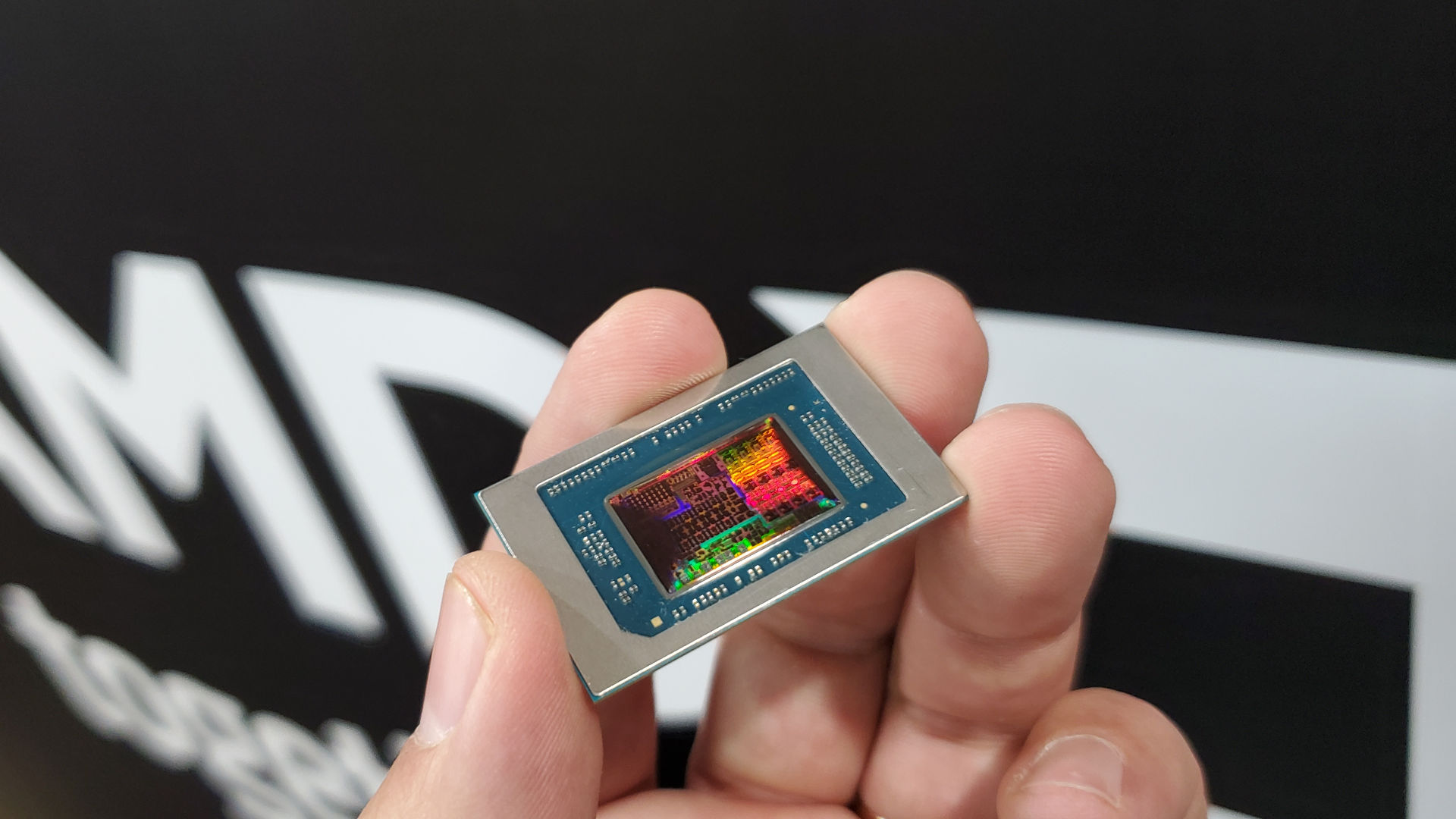Valve says a next-gen Steam Deck 2 still isn't possible, two years after it last said exactly the same thing
There just aren't any chips good enough and probably won't be until 2027.

Keep up to date with the most important stories and the best deals, as picked by the PC Gamer team.
You are now subscribed
Your newsletter sign-up was successful
Want to add more newsletters?

Every Friday
GamesRadar+
Your weekly update on everything you could ever want to know about the games you already love, games we know you're going to love in the near future, and tales from the communities that surround them.

Every Thursday
GTA 6 O'clock
Our special GTA 6 newsletter, with breaking news, insider info, and rumor analysis from the award-winning GTA 6 O'clock experts.

Every Friday
Knowledge
From the creators of Edge: A weekly videogame industry newsletter with analysis from expert writers, guidance from professionals, and insight into what's on the horizon.

Every Thursday
The Setup
Hardware nerds unite, sign up to our free tech newsletter for a weekly digest of the hottest new tech, the latest gadgets on the test bench, and much more.

Every Wednesday
Switch 2 Spotlight
Sign up to our new Switch 2 newsletter, where we bring you the latest talking points on Nintendo's new console each week, bring you up to date on the news, and recommend what games to play.

Every Saturday
The Watchlist
Subscribe for a weekly digest of the movie and TV news that matters, direct to your inbox. From first-look trailers, interviews, reviews and explainers, we've got you covered.

Once a month
SFX
Get sneak previews, exclusive competitions and details of special events each month!
Way back in November 2023, Valve said that there was no suitable silicon available to enable a next-gen Steam Deck. In the wake of the company's latest hardware trifecta, announced yesterday, Valve is saying exactly the same thing. In short, the kind of chips Valve would need to make a true Steam Deck 2 still aren't available and probably won't be until 2027.
Perhaps we shouldn't be surprised. Back in 2023, Steam Deck hardware specialist Yazan Aldehayyat said, "I think for us to make a second version, we will be able to have a substantial performance improvement while sticking to a similar kind of power range and weight to battery life. And that's not going to happen next year or the year after that. It's probably going to be more than that."
Two years on, Valve is still happy to say it plans a new second-gen Deck. But essentially, the same problem remains.
"We're not interested in getting to a point where it's 20 or 30 or even 50% more performance at the same battery life. We want something a little bit more demarcated than that. So we've been working back from silicon advancements and architectural improvements, and I think we have a pretty good idea of what the next version of Steam Deck is going to be, but right now there's no offerings in that landscape, in the SoC [System on a Chip] landscape, that we think would truly be a next-gen performance Steam Deck," Valve's Pierre-Loup Griffais said to IGN at the Valve hardware launch event.
All of this does rather beg the question of what would constitute a chip good enough for a next-gen Steam Deck. Certainly, part of the problem is that AMD, which supplies the APU for both the original Steam Deck and the Steam Deck OLED update, has actually been pretty conservative with its APU roadmap. At least it has when it comes to APU that could reasonably be used in the likes of a Steam Deck.

AMD's current top truly mobile APU is Strix Point. The problem is that it's a chip built on TSMC N4 silicon. And that silicon node is getting on now. It's really a variant of TSMC's N5 node. And the very first N5-based chips went on sale over five years ago.
It's also worth noting that AMD's mighty Strix Halo APU isn't suitable for a next-gen Deck, despite the fact that it's been crammed into at least one handheld PC. It's very powerful, but it almost certainly wouldn't meet Valve's battery life expectations.
Keep up to date with the most important stories and the best deals, as picked by the PC Gamer team.
It seems likely, then, that we'll need to see an APU on TSMC's N3 node, or even N2, before there's a chip that can advance sufficiently on the current Deck's outright performance while maintaining or improving battery life. Unfortunately, there's nothing on AMD's roadmap that immediately fits the bill.
AMD's next APU is known as Gorgon Point, and it's expected to be a pretty minor revision of Strix Point and still built on N4. It won't be until 2027 and the release of AMD's rumoured Medusa APU, which AMD officially confirmed this week, that we have the makings of a true next-gen APU.
Medusa is expected to offer Zen 6 CPU cores and RDNA 5 graphics. Rumour has it, Medusa could be a chiplet design, with the Zen 6 cores built on TSMC's ultra-advanced N2 node and the graphics on N3. But almost certainly, Medusa will be on more advanced silicon than any existing AMD APU and thus should offer the generational leap Valve is looking for.
Of course, Valve may commission a bespoke chip for the Deck 2. That's what it did for the OG Deck. But even a custom chip would likely be derived from AMD's ongoing hardware roadmap. And if there's no N3 or N2 APU from AMD's own APU roadmap until 2027, it may not be realistic to expect a custom chip that supports newer TSMC silicon until then, either.

If AMD dragging its feet a little with APUs is frustrating, it's hard to see what alternative Valve has. Admittedly, what Valve is doing with its FEX translation layer to get x86 games running on the Arm chip in the new Steam Frame is pretty cool. So, it probably wouldn't be a surprise to see a future Steam Deck based on Arm rather than traditional x86 CPU cores.
And if an Arm chip is viable, then suddenly the likes of Qualcomm's Snapdragon X line of chips, not to mention Nvidia's upcoming Arm chip, become options. But fully building out the ecosystem to enable that is probably a long-term project that won't be ready to go for Steam Deck 2.
All of this means that the earliest we're likely to see a Steam Deck 2 is 2027, at which Point the Steam Deck will be over five years old. But maybe that's OK. The Steam Deck is arguably more like a console than a PC. And like a console, it's more about the overall platform and package than outright performance.
Moreover, consoles tend to run to five-year-plus life cycles, rather than the more relentless PC upgrade cycle that tends to see major new CPU and GPU architectures every two years. So a Deck 2 in 2027 or even 2028, as long a wait as that feels, probably makes sense.

The best PC gaming gear 2025
All our current recommendations











Jeremy has been writing about technology and PCs since the 90nm Netburst era (Google it!) and enjoys nothing more than a serious dissertation on the finer points of monitor input lag and overshoot followed by a forensic examination of advanced lithography. Or maybe he just likes machines that go “ping!” He also has a thing for tennis and cars.
You must confirm your public display name before commenting
Please logout and then login again, you will then be prompted to enter your display name.

